

Antibiotics prevent millions of deaths each year and remain the primary treatment for potentially fatal bacterial infections. Yet inappropriate prescription rates and overuse of antibiotics have led to resistance that has created a global health emergency and kills at least 700,000 people a year.
Timely information
Serial procalcitonin (PCT) testing can make a difference when speed and accuracy matter most. PCT provides data specific to systemic bacterial infection, with respect to its presence, course, and severity. Adopting PCT tests into your antibiotic stewardship program has the potential to reduce initial antibiotic prescription rates, antibiotic treatment duration, in-hospital and ICU length of stay, and the likelihood of antibiotic-caused adverse events while resulting in optimized therapy, improved outcomes, and reduced costs.
Lower respiratory tract infections can present in many different ways, including acute bronchitis, community-acquired pneumonia, and acute exacerbation of chronic obstructive pulmonary disease.
In the past, this ambiguity was met with almost-automatic antibiotic therapy. Today, we have better information and better ways to decide if antibiotics are warranted.
Procalcitonin (PCT) provides critical biomarker information. PCT is produced by numerous organs at a cellular level after bacterial pro-inflammatory stimulation.1,2
Procalcitonin is a host response to bacterial insult.3-5
Viral Infections inhibit PCT expression, enhancing the ability to distinguish bacterial infections from non-bacterial infections (PCT is not specifically indicated as a viral marker).
√ Bacterial infection stimulates PCT
√ Viral infection blocks PCT
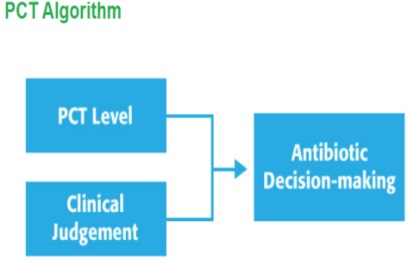
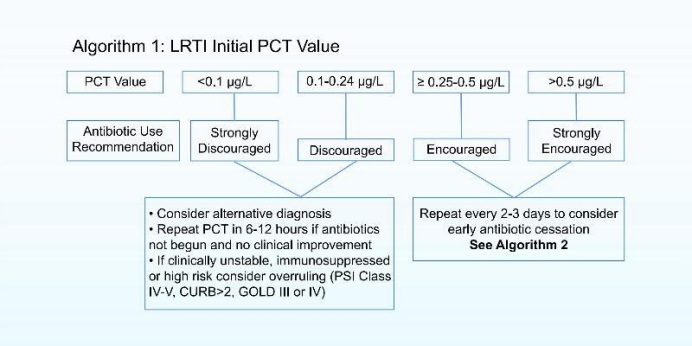
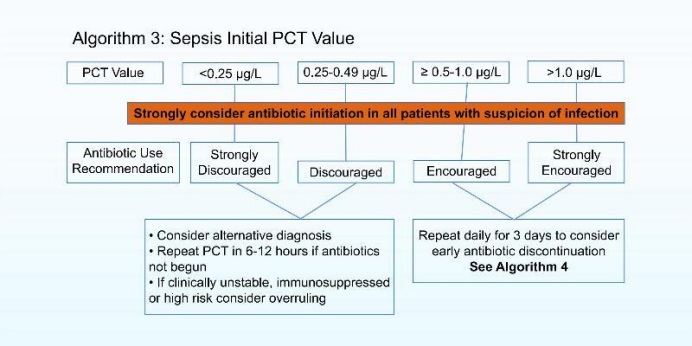
PCT-Guided Antibiotic Therapy is Safe and Effective for Patients
Significant reduction in antibiotic initiation
√ 19% reduction in relative antibiotic initiation in all patients
√ 39% reduction in initiation of antibiotics in ED patients
Significant reduction in exposure to antibiotics
√ 38% reduction in overall antibiotic exposure for inpatients
√ 51% reduction in overall antibiotic exposure for patients in ED
No adverse safety signals associated with PCT guidance for LRTI
√ No signal for increase in 30-day mortality, complications or length of stay
Sepsis: PCT-Guided Antibiotic Therapy
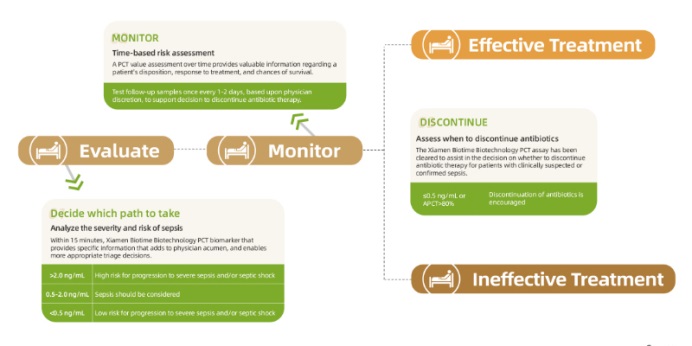
PCT is an Important Part of the Solution
√ Antibiotic therapy is of great importance
√ Prolonged duration is associated with development of antimicrobial resistance
√ PCT-guided antibiotic therapy reduces antibiotic exposure and patient length of stay (a 23% reduction in antibiotic exposure)
√ No adverse safety signals associated with PCT-guided antibiotic therapy for sepsis
Learn More About Xiamen Biotime Biotechnology PCT at www.xiamenbiotime.com
Clinical Utilities:
√ The key indicator of all bacterial infections
√ 93% specific for sepsis detection
√ Determine the severity of a sepsis infection
√ Main guider in antibiotics therapy
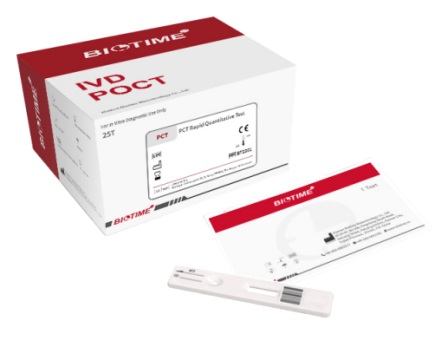
Reference:
1. World Health Organization. World Health Organization; 2019
2. Tackling drug-resistant infections globally: Final report and recommendations. London (UK). 2006
3. Karzai W, et al., Infection. 1997 Nov 1;25(6):329-34.
4. Müller B, et al., J Clin Endocrinol Metab. 2001;86(1):396-404.
5. Linscheid P, et al., Crit Care Med. 2004;32(8):1715-1721.
6. Linscheid P, et al., Endocrinology. 2003;144(12):5578-5584.
7. Linscheid P, et al., Endocrinology. 2005;146(6):2699-2708.
La página web
